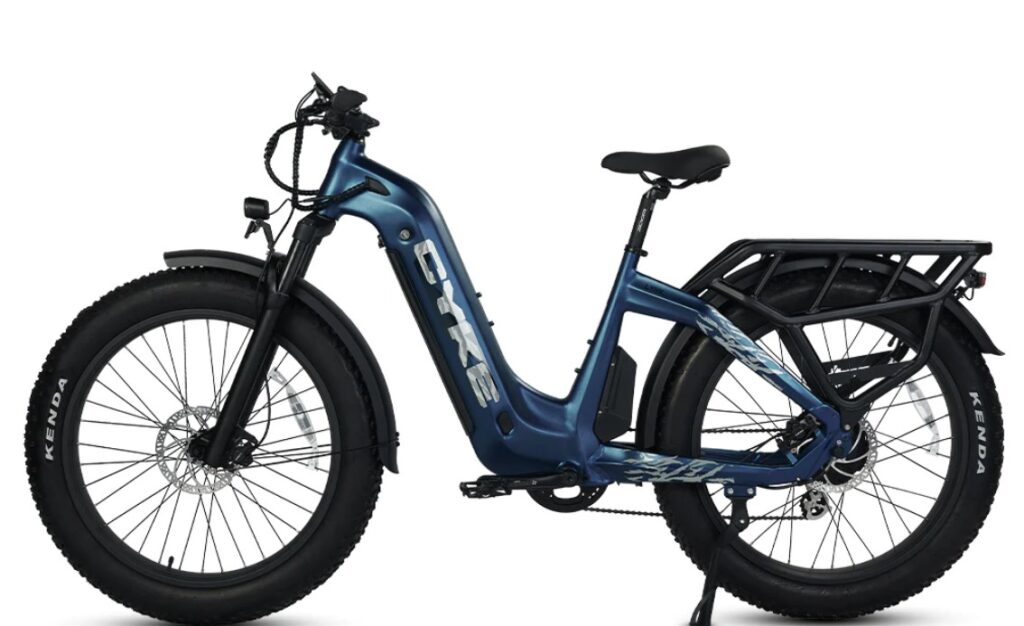
In today’s rapidly evolving world, there is an increasing concern for environmental protection and sustainability. In the field of transportation, electric bicycles are favored by more and more people as a clean and efficient alternative. Among them, a high-profile Electric Bike is the “Fat Tire Electric Bike” (fat wheel electric bike), which has attracted a large number of riders’ interest with its unique design and function. However, we need to delve deeper into the environmental impact of such bikes and their sustainability.
First of all, the environmental impact of fat wheel electric bicycles is significantly different from that of traditional internal combustion engine vehicles. Compared to cars or motorcycles, the emissions generated by electric bicycles during operation are very small and almost negligible. This means they have no negative impact on air quality in the atmosphere, helping to reduce urban pollution and greenhouse gas emissions. In addition, fat wheel e-bikes are often charged with renewable energy sources, such as solar or wind power, further reducing their carbon footprint, making them ideal for environmentally friendly mobility.
Secondly, the sustainability of the fat wheel electric bicycle is also reflected in its design and material choice. These bikes are typically made of lightweight aluminum alloy or carbon fiber materials, allowing them to reduce resource consumption over their lifetime. In addition, the battery system often adopts a removable design, which is easy to replace and repair, extending the service life of the vehicle and reducing the generation of waste. Compared to single-use batteries, this design reduces the need for limited resources and promotes the recycling of resources.
However, despite the many environmental advantages of fat wheel electric bicycles, we cannot ignore their potential negative effects. First of all, the materials and processes required to manufacture these bicycles may produce a certain amount of environmental pollution, especially when environmentally unfriendly materials or energy sources are used in the production process. Second, the high demand for electric bicycles may lead to over-exploitation of resources and energy consumption, causing a certain pressure on the natural environment. Therefore, in the promotion and production of fat wheel electric bicycles, attention must be paid to reducing the environmental impact of the production process, and actively take measures to improve production efficiency and resource utilization to ensure its sustainability.
In addition to the production process, the use and maintenance of fat wheel electric bicycles also have an impact on the environment. For example, the charging process of the battery may rely on a conventional electric power system, which could negate the environmental advantages of the bicycle itself if that electric power system relies primarily on fossil fuels. Therefore, in order to maximize the environmental potential of electric bicycles, it is necessary to promote the popularization of clean energy and encourage users to adopt renewable energy charging.
In addition, the maintenance and disposal of fat wheel electric bicycles are also key issues. Ensuring regular maintenance of fat tire electric bike can extend their service life and reduce waste generation, so it is necessary to provide relevant repair services and guidance. In addition, for discarded bicycle parts and batteries, appropriate recycling and disposal methods should be adopted to minimize the negative impact on the environment.
When we consider the environmental impact and sustainability of fat wheel e-bikes, we also need to consider their impact on urban planning and transportation patterns. Compared with traditional cars, electric bicycles have a smaller space footprint and more flexible mobility, which can help alleviate urban traffic congestion problems. By encouraging people to use fat-wheeled electric bicycles as a means of short-distance travel, cities can reduce dependence on cars, reduce traffic congestion and exhaust emissions, and improve urban air quality and residents’ quality of life.
In addition, fat wheel electric bicycles can also promote the development of healthy living and eco-tourism. Riding an fat tire electric bikecan not only reduce carbon emissions, but also increase people’s physical exercise, helping to reduce the occurrence of chronic diseases. The off-road performance of the fat wheel electric bicycle and the characteristics of adapting to various road conditions also make it an ideal tool for exploring nature and participating in ecotourism activities, promoting the connection and protection of people and nature.
In addition to applications in urban environments, fat wheel electric bicycles can also play an important role in rural areas. Traditional car transportation is often unable to access rural remote areas, and electric bicycles can easily cross a variety of terrain, providing farmers with a convenient way to travel. The fat wheel electric bicycle in rural areas can also be used for agricultural production and cargo transportation, improve the circulation efficiency of agricultural products, and promote the development of rural economy.
To sum up, fat wheel electric bicycles play an important role in promoting environmentally friendly travel and sustainable development. Although there may be certain environmental impacts during its production and use, these negative impacts can be minimized through reasonable design and management, and a more environmentally friendly and sustainable mode of travel can be achieved. Therefore, the government, enterprises and individuals should work together to promote the development and application of fat wheel electric bicycles, and contribute to the construction of a clean and beautiful earth.
